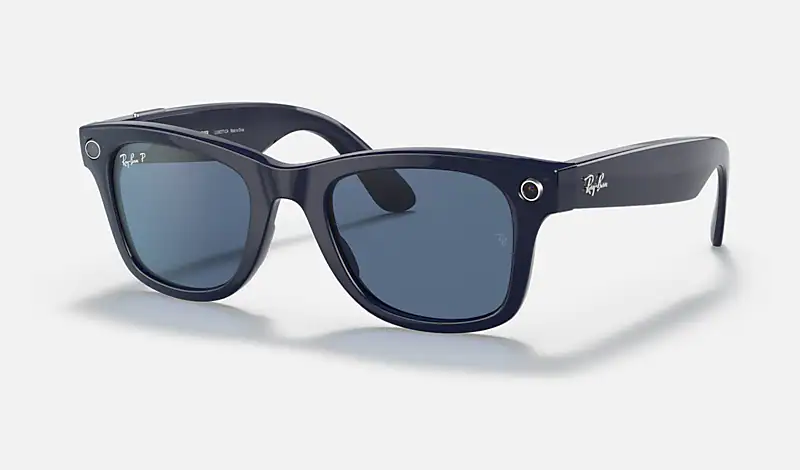According to reports, Ray-Ban Stories is only "actively used" by the owner of 10%.
《华尔街日报》上周报道称,不到10%的购买的Ray-Ban Stories被其所有者“积极使用”。这一统计数据来自“华尔街日报”审查的一份 Meta 文件,该报还报道称,根据知情人士的说法,Meta 仍计划于今年秋季或明年春季与雷朋合作推出第二代Ray-Ban Stories眼镜。
A report from The Information also stated that a second-generation story is planned for 2023, while Meta and Ray-Ban parent company Luxottica confirmed work on new smart glasses last October. The latest report from The Verge reconfirms a second-generation launch this year, with a third-generation allegedly planned for 2025, featuring a "viewfinder" display and a neural-input wristband.

In September 2021, Meta (then Facebook) announced the first generation of Ray-Ban Stories glasses as a line of smart glasses with built-in cameras, speakers, and microphones. The glasses primarily allow the wearer to take (and later share) point-of-view photos and videos, as well as play music and use for phone calls. The glasses don't have any displays and require the use of a companion mobile app to view, download and share what's captured.
As such, the Ray-Ban Stories glasses are not a "true" AR device, and are separate from the AR glasses Meta is developing. Originally planned for release in 2024, the glasses will reportedly be delayed until at least 2027, due to core challenges facing the technology that are difficult to overcome across the industry.
Until these challenges are overcome, Meta seems determined to continue working with Louis Vuitton and the Ray-Ban Stories eyewear line as a precursor to true augmented reality.
According to a report from The Wall Street Journal this week, the second-generation Ray-Ban Stories will offer similar functionality, but with longer battery life, a better camera, and work on more Ray-Ban frames. According to reports, the second-generation device will not have features that are classified as augmented reality.
According to the "Wall Street Journal" report, between its launch in September 2021 and February 2023, Meta sold a total of 300,000 first-generation Ray-Ban Stories glasses, of which there were only 27,000 monthly active users.
According to documents reviewed by The Wall Street Journal, a 13 percent return rate for Ray-Ban Stories devices was attributed to issues users had with connectivity, battery life, importing captured media, and more.
Related posts



